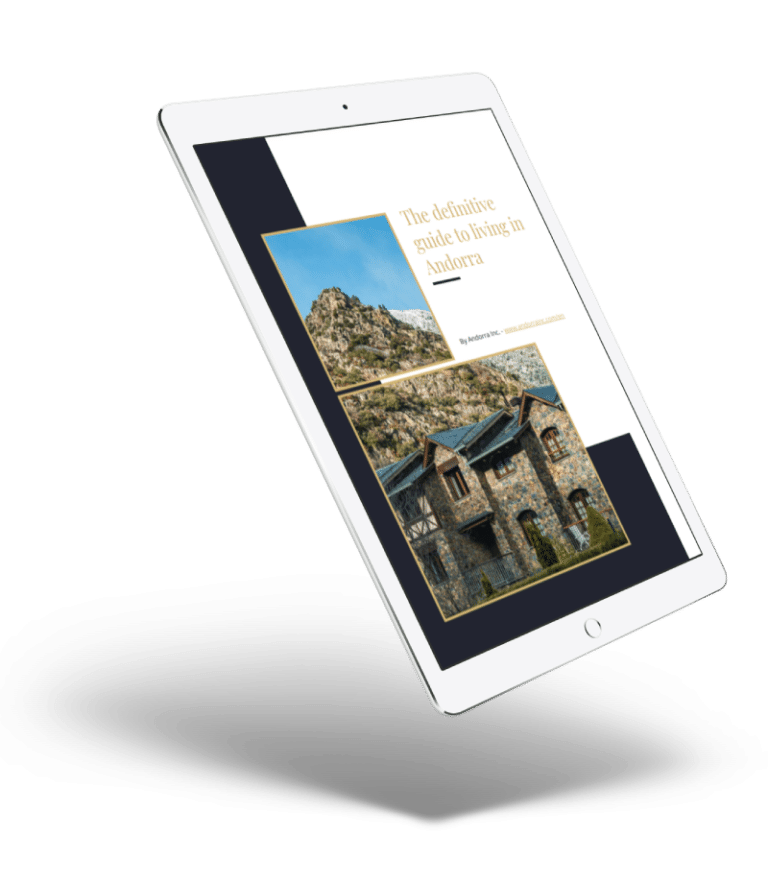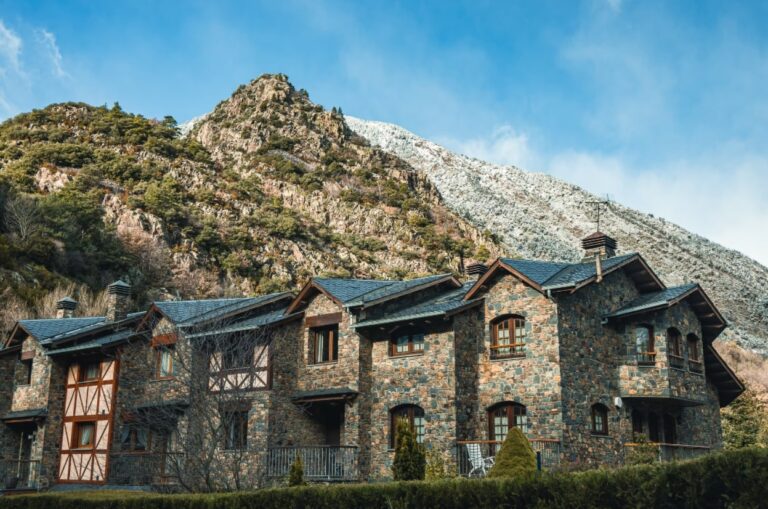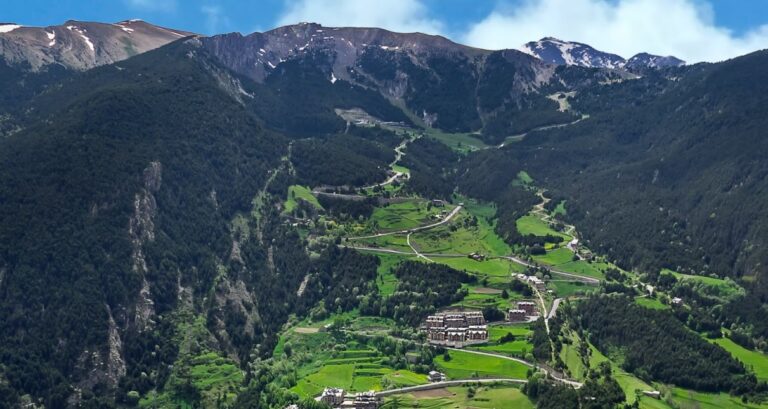
Written by Marc Cantavella, AndorraInc Co-Founder & Andorran Tax Expert
Questions? Ask Marc on Whatsapp
Andorra, the small principality nestled in the Pyrenees between Spain and France, has become increasingly attractive to those seeking a high quality of life combined with lower taxation. Over the past few years, more and more people have been relocating to Andorra, lured by its political stability, security, and advantageous tax system.
However, one aspect that can cause confusion among newcomers is the difference between administrative and tax residence.
These two concepts often overlap but do not necessarily coincide, so in this article, we will clarify the main differences between administrative residence (the permit to legally reside in the country) and tax residence (the right and obligation to pay taxes in Andorra).
New report
The report “The definitive guide to living in Andorra” is now available, with detailed information on Andorra’s tax framework, residence and society.
Click here to download it for free.
Administrative vs tax residence
The first step to understanding how Andorra’s immigration and tax systems work is to differentiate between these two concepts:
- Administrative residence: This is the legal permission granted by the Andorran government allowing you to reside within the country’s borders. It takes the form of a residence card or “green card,” which indicates you are an authorized resident. Administrative residency can be “active” (linked to employment or self-employment) or “passive” (linked to investment or sufficient means).
- Tax residence: This defines where you are deemed to reside for tax purposes. In other words, it is about which country has the right to tax your global income. Tax residency usually depends on the number of days you spend in a country, as well as where your economic, family, and social ties are primarily located.
Crucially, holding an administrative residence permit in Andorra does not automatically mean you are a tax resident there.
You may qualify for a passive residence permit that only requires you to stay in Andorra 90 days a year, but if you end up spending the rest of the year in another country where you have substantial ties, you could be considered a tax resident of that other country.
Andorra administrative residence
Andorra offers multiple pathways to obtain a valid residence permit. Each one is tailored to a specific profile, but they can be summarized in three main categories:
- Active residence: this can be obtained by individuals who work in Andorra under an employment contract or by those who create and manage an Andorran company, typically known as the “residence for self-employed.” Holders of an active residence must usually spend at least 183 days per year in Andorra.
- Passive residence: also referred to as “residence by investment,” this is for those who can demonstrate sufficient economic means or wish to invest in Andorra. The minimum requirement often includes investing around €600,000 in the country (in real estate, local company shares, or financial products) and depositing a sum of €47,500 (plus €9,500 per dependent) with the Andorran Financial Authority (AFA). Passive residents only need to spend 90 days per year in Andorra to maintain their permit.
- Digital nomad or entrepreneur visa: a newer category designed for individuals who primarily work online, often for clients or companies based outside Andorra. Like all other types of administrative residence, it grants you the right to stay in the country but does not automatically qualify you for tax residency if you do not meet certain criteria (such as spending sufficient days in the country).
There are also other routes, such as family reunification or residence for health reasons, but the bulk of new residents typically fall under the “active” or “passive” categories, while the new digital nomad visa scheme remains very difficult to obtain.
No matter which permit you obtain, remember that fulfilling the administrative requirement does not in itself make you a tax resident. It is crucial to evaluate your personal situation carefully, especially if you are seeking to minimize your tax exposure in a legitimate manner.
Securing the tax residence
To be considered a tax resident in Andorra, the Andorran Personal Income Tax Law states that you must meet at least one of these criteria:
- Spend more than 183 days during a calendar year in Andorra. Temporary absences, such as vacations or short business trips, are often still counted as days spent in Andorra if you can prove your center of life is here.
- Have the center of your activities or economic interests in Andorra. This generally means that the majority of your income or assets is generated or located in the principality.
Additionally, there is a presumption of Andorran tax residence if your spouse or dependent children reside in Andorra.
The critical takeaway is that tax residency is determined by the actual facts of your daily life, where you spend most of your time, where your family and business interests are, and how you connect to the territory. Merely holding a “green card” (administrative residence permit) does not give you a free pass to be taxed under Andorran rules.
To enjoy Andorra’s low taxes, you must meet the substantial presence requirements and ensure that your primary ties are within the country.
The 90 days myth
A common misconception, sometimes perpetuated by uninformed advisors, is that if you hold a passive residence permit (requiring only a 90-day stay) you can magically become a tax resident of Andorra. This is not correct.
If you spend just 90 days in Andorra and the other 275 days in another country, tax authorities in that other country will likely consider you a tax resident there. For example, spending the remainder of the year in Spain, France, or your home country would almost certainly trigger tax residency obligations there, not in Andorra.
While it is true that administrative passive residence demands only 90 days per year in the principality, this does not align with the 183-day threshold commonly used to establish tax residency. If your goal is to legitimately pay taxes in Andorra, the safest approach is to ensure you do not exceed 183 days outside the country and that your primary economic and family interests are here. Otherwise, the “90 days rule” can expose you to scrutiny and conflict with foreign tax authorities.
Benefits of living in Andorra
Beyond favorable taxation, Andorra offers a range of benefits that have convinced thousands of new residents to call it home:
- Safety and security: Andorra consistently ranks as one of the safest countries in the world, with very low crime rates.
- Breathtaking environment: surrounded by the Pyrenees, Andorra provides a stunning natural setting, offering skiing in winter, hiking in summer, and fresh mountain air year-round.
- Tranquility and quality of life: the country’s small size and focus on community well-being give residents a relaxed pace of life. Health services are excellent, infrastructure is modern, and traffic is rarely an issue.
- Proximity to Spain and France: Andorra is strategically located about three hours from Barcelona and Toulouse, enabling easy access to international airports, cultural centers, and business hubs.
- An unbeatable tax framework:
- Personal income tax in Andorra tops out at just 10%. The rate for the first €24,000 of annual income is 0%, and from €24,000 to €40,000 it is 5%.
- There is no wealth tax or inheritance tax
- Capital gains taxes are low or non-existent
- Same with dividend taxes
- The standard VAT (IGI) is 4.5%.
When combining low crime, pristine nature, a moderate cost of living compared to many major European cities and a very convenient tax framework, Andorra stands out as a genuine haven for those looking to improve their lifestyle without sacrificing accessibility or modern comforts.
Thinking of moving?
If you are considering relocating to Andorra, the first step is to consult with tax experts in your country of origin and Andorra. Each case is unique, and a personalized analysis can help you avoid costly mistakes. Whether you choose active residence, passive residence, or a digital nomad visa, meticulous planning will safeguard your financial interests.
We invite you to read the report “The definitive guide to living in Andorra” for in-depth insights on the country’s residency options, tax system, and lifestyle. For any questions or clarifications about your specific situation, feel free to reach out.
You can contact us without obligation in the following ways:
- By sending an email to [email protected]
- Or by filling out the form below:
Sources
- https://www.bopa.ad/Documents/Detall?doc=CGL_2024_02_21_14_02_59
- https://www.bopa.ad/bopa/034148/Pagines/CGL20221219_11_51_10.aspx
- https://www.afa.ad/
- https://www.consellgeneral.ad/ca/arxiu/arxiu-de-lleis-i-textos-aprovats-en-legislatures-anteriors/vi-legislatura-2011-2015/copy_of_lleis-aprovades/llei-5-2014-del-24-d2019abril-de-l2019impost-sobre-la-renda-de-les-persones-fisiques
- https://www.consellgeneral.ad/fitxers/documents/lleis-2023/llei-5-2023-del-19-de-gener-de-mesures-per-a-la-reforma-de-la-imposicio-directa-i-de-modificacio-d2019altres-normes-tributaries-i-duaneres


 All communications are encrypted and will be treated with absolute confidentiality. Your data will never be shared with third parties.
All communications are encrypted and will be treated with absolute confidentiality. Your data will never be shared with third parties. 




